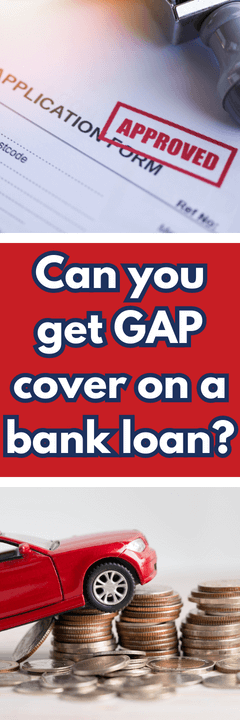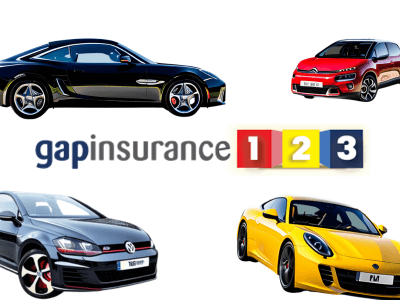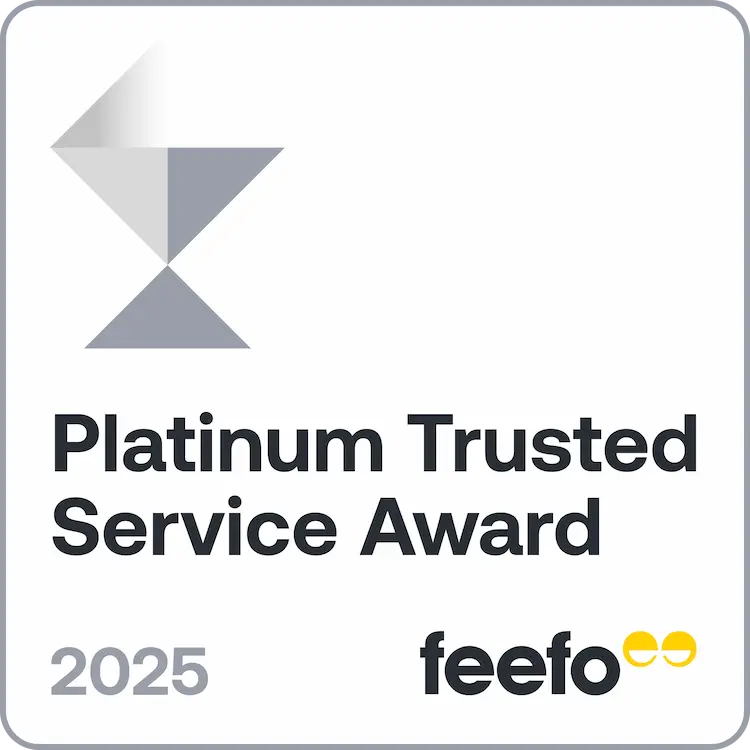Call Monday-Friday 9am - 6pm Closed Saturday & Sunday
Please select some policies.



Need Help? Calling from a mobile please call 0151 647 7556
0800 195 4926 / 0151 647 7556Do you have a question? or need help?
Call Monday-Friday 9am - 6pm Closed Saturday & Sunday,
When buying a car, the purchase can be financed in many ways. Some of these can be sourced through the car dealership, like hire purchase or personal contract purchase. An alternative source of funding is getting a personal loan through a bank.
On the face of it, there may not be too much to choose between them, but some differences can impact both your financial protections and options and your choices for GAP Insurance coverage.
The bottom line is you can still get GAP Insurance if you take out a bank loan, but a few things must be understood first.
Dealer finance vs Personal/Bank Loan
GAP Insurance options with a bank or personal loan
How GAP Insurance works on a bank loan
Hire Purchase and Personal Contract Purchase are forms of retail finance that are closely related. 
These are available for new and used cars.
The vehicle does not become the borrower's property until the HP or PCP agreement is paid off in full.
The key to these types of finance is that they are linked to the purchased vehicle. If the customer defaults on the car loan, the finance company can look to recover the vehicle.
Additionally, the outstanding finance settlement must be paid if the vehicle is written off.
A bank loan is generally tied to the person applying for it, not the car. This means that if the customer defaults, then the bank will look to redress the situation with the customer, not repossess the vehicle.
As the vehicle is not linked to the loan, the borrower owns the car outright from the beginning.
Another key difference is that if the car is written off, the outstanding loan payments can continue to be paid each month. The whole settlement does not need to be paid.
If you look to buy GAP Insurance cover, a bank loan is almost considered a 'cash buy' as the loan is not linked to the vehicle. This means that the choice of GAP Insurance policies would be the same as for an outright vehicle purchase, namely:
Of all the types of GAP insurance available for PCP and HP, the one not available for a bank loan is Finance GAP insurance. This is because the loan is not linked to the vehicle, so there can be no financial shortfall between the market value settlement from the car insurance provider and the loan settlement.
To clarify, the GAP Insurance you take is not directly against the bank loan. However, it does provide you with financial protection that can incorporate cover against the bank loan liability.
As mentioned above, taking out GAP Insurance and funding the vehicle via a bank loan is considered like a cash purchase.
So, for example, let's say you buy a brand-new car for £25,000.
You secure the purchase via a bank loan for the total purchase price of £25,000. You will make monthly payments over 60 months of £500.
You look at the different types of GAP insurance and decide to buy Return to Invoice cover for four years. The GAP Insurance cost is £210.
Two years later, the vehicle is stolen. Your car insurance provider writes off the vehicle and pays you the current market value at that time. The motor insurer pays £17,000 in settlement.
Your bank loan settlement is £20,000.
The Return to Invoice GAP policy will pay the difference between the motor insurance company settlement of £17,000 and the original price you paid for the vehicle of £25,000.
At this time, armed with £25,000, you have a choice.
You can use the full £25,000 settlement and buy a brand-new replacement vehicle. You can continue paying the outstanding payments on your bank loan until the 5-year term has finished.
Alternatively, you can pay off the £20,000 on your car loan and use the remaining £5,000 in any way you like.
The same arguments exist for guaranteed asset protection on a bank loan as for dealer finance. The only slight mitigation is that with a bank loan, you will not be asked to pay off the loan immediately like you would for HP, PCP or a lease contract.
The fact that you do not have to pay off a bank loan immediately following a write-off does not make the personal loan disappear. You could still be left where you owe more on the loan settlement than the vehicle is worth.
If you are considering what GAP Insurance offers, then you need to think about all the reasons why cover can help you. This way, you can decide whether buying GAP insurance suits you.

1. Depreciation: New vehicles tend to depreciate rapidly in the first few years of ownership. This can lead to a significant GAP between the car's value and the original purchase price or replacement cost.
2. High loan-to-value (LTV) ratios: When borrowers take out loans with high LTV ratios, they may owe more on the loan than the value of the car, creating a GAP.
3. Long loan terms: Longer loan terms can result in slower principal repayment, increasing the likelihood of a GAP between the outstanding loan balance and the depreciated value of the asset.
4. Accidents or theft: In case of an accident or theft, the insurance payout might not cover the entire loan balance, leaving the borrower in a negative equity situation.
The decision to purchase GAP insurance when paying cash for a vehicle ultimately depends on individual circumstances. Factors to consider include:
1. Depreciation rate: Assess the expected depreciation rate of the vehicle, taking into account factors such as make, model, age, and mileage.
2. Financial cushion: Consider your financial situation and whether you have enough savings to cover potential financial losses in an accident or theft.
3. Risk tolerance: Evaluate your risk tolerance and comfort level with potentially having to cover a financial loss out of pocket.
GAP insurance is a clear consideration for buyers who finance their vehicle with a bank loan. It provides financial protection in the event of an accident or theft.
While GAP insurance may not be necessary for those who pay cash for their vehicles, it can still provide some protection in specific circumstances.
Before deciding to purchase GAP insurance, evaluating factors such as loan terms, asset depreciation, and existing insurance coverage is crucial.
Additionally, it is essential to compare GAP insurance policy options available, as coverage can vary between providers.
While buying GAP insurance at the same time as taking out the bank loan is typically recommended, many insurance providers offer the option to get GAP insurance after the vehicle is purchased.
However, there may be restrictions on when GAP insurance can be added, such as within a certain period from the loan origination date or before the asset depreciates beyond a specified threshold.
Typically you can take a Return to Invoice or Vehicle Replacement cover within 180 days of the vehicle purchase.
No. Having GAP Insurance is just a personal choice. You are not required to take out GAP insurance in any case, and taking GAP Insurance does not impact your eligibility for a bank loan.
The need for GAP Insurance is just for you to decide.
Once. GAP Insurance is an 'all or nothing' type of insurance cover, like life insurance. Once you have made a GAP Insurance claim on the policy, that is the end of that cover. You can then get a brand new GAP Insurance policy for your replacement vehicle.
It is possible but doubtful. A bank loan is against the borrower and not a car, so the bank may not be particularly interested in what you are borrowing the money for. The loan could be for a caravan, watch, wedding, holiday, or other reasons.
Again, possibly. Some car insurance providers have been known to sell GAP Insurance in the past. However, this is commonly through one of many specialist GAP Insurance providers.
If you take out GAP Insurance when you have financed your vehicle purchase through a bank loan, you can protect any deposit you put into the purchase.
For example, if you take out a Return to Invoice GAP Insurance on a vehicle purchased for £20,000 with a bank loan of £15,000, you are putting a £5,000 deposit in.
If the vehicle is written off or stolen, your RTI GAP Insurance can top up your standard car insurance market value settlement to the £20,000 you originally paid. This, in effect, covers your deposit plus any equity you have from making further payments on your finance agreement.
The protection provided by an RTI or VRI GAP Insurance policy remains the same if you pay off your bank loan early. You can still top up your motor insurance payout back to either the price you first paid or the future cost of a replacement car, depending on which GAP cover you took.
Published 14/5/2023, written by Mark Griffiths
Please select some policies.

We are here to help! Search our help centre for any questions you may have.
Gap 123 or Gap Insurance 123 to be official is a trading name of Aequitas Automotive Limited
Aequitas Automotive Limited was formed on the 17th of August 2010.
We are based in a stunning grade 1 listed Georgian Town House called Aequitas House in Hamilton Square, which is on the Wirral Peninsula.
Aequitas Automotive Limited is a privately owned limited company.
You can find our opening hours at the top of our websites. Please note that these may be subject to change. If you wish to contact ourselves outside of these hours, please email [email protected] and an advisor will contact you as soon as available.
Our telephone number is 0800 195 4926 or 0151 647 7556.
You can contact us using the contact form or directly at [email protected]
If you want to write to us please send your correspondence to Aequitas House, 56 Hamilton Square, Birkenhead, Wirral, CH41 5AS
The purchase price is the total on the road price after any discount but before you have paid a penny in part exchange or cash deposit.
IPT (insurance premium tax) is a tax paid to HMRC on all insurance premiums.
The FCA is short for the Financial Conduct Authority.
The FSCS is short for the Financial Services Compensation Scheme.
A PCP better known as personal contract purchase is a type of financial package which is often used to fund the cost of a car. We would ask you to speak to your dealership who will be regulated to talk to you regarding your financial package. In reference to your gap insurance it is important as there is a financial tie to your vehicle. This means that from your settlement the finance outstanding is always cleared and what ever is left is sent to you for you to spend as you see fit.
A PCH better known as a personal contract hire is a financial package used to fund the purchase of a vehicle.
The Ombudsman service is an independent service that mediates between financial service providers and policy holders.
The Insurance Broker is normally the company that you have purchased your policy or financial service from.
This is the policy document which contains details regarding the policy holder, the vehicle on cover as well as the type of policy purchased.
With regards to our Gap Insurance policies this is either the date that you have made a claim or the date at which your policy expires.
This is a set time stated within your policy Terms & Conditions during which you can cancel your policy and receive a full refund, provided you have not made a claim. We offer 30 days cooling off, but depending upon where you have purchased your policy from this may be different.
This is an option that may be offered by your motor insurance company if you have purchased a vehicle and are the first name on the V5. Please contact your motor insurance company if you think you may have this option.
The claim limit is the maximum amount your Gap Insurance policy will pay out on top of your comprehensive motor insurance companies settlement.
This would be the amount that you would need in order to settle your finance agreement on the day that your vehicle was written off.
As far as our policies are concerned, this means that your insurance company have looked at the reason for your vehicle being declared a total loss and must have agreed that your claim is valid.
This is a list of countries that your gap insurance policy will cover you in. You can find a full list is available in your policy terms.
With respect to our gap insurance policies this means any amount that you have brought forward from an old finance agreement to the purchase of your new vehicle.
This is the amount that you have paid for your Gap Insurance policy.
This is the date that you have taken possession of the vehicle.
This is the date that you have selected to start your policy from.
This is the event which your motor insurance has declared your vehicle written off.
This is the event which occurred for your own motor insurance to declare your vehicle written off.
The list price of your vehicle. This is normally only needed if you are purchasing your vehicle on a contract or lease hire agreement.
This is the insurance company who back your policy.
This is the organisation who will responsible for settling your claim.
This is the document from DVLA which will show that you are the legal keeper of the vehicle.
These are extras that you have paid your local garage to fit on your vehicle. (Please see your policy documents for a list of exclusions - eg extended warranty.)
These are optional extras that were fitted to your vehicle when it was first built at the factory.
Aequitas Automotive is our limited company name. We trade online using brands including Gap Insurance 123, Easy Gap, Total Loss Gap and Shortfall.
You can contact the office via the following methods: Telephone: 0151 647 7556 or 0800 195 4926 Email: [email protected]
The company registration number for Aequitas Automotive is 7347606.
Yes, our company is directly authorised by the FCA and our FRN is 821163
Our company is based in a grade 1 listed Georgian building in Birkenhead. Our address is Aequitas House, 56 Hamilton Square, Birkenhead, Wirral CH41 5AS.
Our BIBA number is 006652.
Yes, we are regulated by the ICO and our number is Z2455374. You can check this by calling the ICO on 0303 123 1113
No, none of our staff are paid commission when they provide a policy for you. All of our staff are salaried and any bonuses they get are based on rates of customer service.
Aequitas Automotive Limited was founded in 2010.
Our FCA Number is 821163
Yes. We can also offer Smartcare, excess cover and tyre and alloy wheel insurance.
Any member of our customer service team can update your registration plate. Your can contact us on 0800 195 4926 or 0151 647 7556 in order to update your policy.
Changes to your contact details can be processed free of charge. In order to update your details, please contact any member of the team on our contact numbers 0151 647 7556/0800 195 4926.
For security, if you are not logged in before you purchase your policy, it will not automatically assign to your online account. If you cannot see your policy, please contact our customer services team on 0800 195 4926 or 0151 647 7556 and any member of the team can assist.
Your online account password can be reset using the link below the log in area on the website. If you require assistance, please contact our advisors on 0800 195 4926 or 0151 647 7556.
IPT stands for Insurance Premium Tax. This is a tax on Insurance products which is passed to HMRC. All our Gap123 policies are inclusive of IPT.
At present (July 2021) the current rate of Insurance Premium Tax charged on independently purchased gap insurance/supplementary insurance is 12%.
If you change your vehicle mid-term, please contact our advisors on either 0800 195 4926/0151 647 7556 who will look into the options available to you.
In order to be eligible for the higher levels of cover, you must purchase your Gap Insurance policy within the first 180 days of ownership of your vehicle.
This will depend on the type of policy you have purchased. Please call 0800 195 4926 or 0151 647 7556 and an advisor will be able to go through this with you.
Gap Insurance is a single use cover. Once you have made a claim, the policy is then finished.
We may have options for monthly payments in regards to your policy. Please contact any member of our advisors on 0800 195 4926/0151 647 7556 in order to look at the options available.
Yes, all our policies are backed by the FSCS.
The quote provided will be a one off payment for the entire term selected unless you have chosen a monthly payment option.
No, in the event of a write off, any unused Road Tax can be claimed back from the DVLA.
All our Gap policies are designed to work alongside your motor insurance company. If the motor insurance company agrees to pay out then the Gap policy should follow suit.
No. We cannot cover taxi/private hire usage on a Gap123 policy. If you are using your vehicle for taxi/private hire usage, why not check our Easy Gap website for a quote?
Yes. Gap Insurance is a policy which tops up your motor insurance settlement. You cannot purchase a policy if you do not have comprehensive motor insurance cover in place.
RTI is the abbreviation of a Return to Invoice policy.
A VRI policy is a Vehicle Replacement policy.
There are a variety of Gap Insurance products available on the marketplace. What policies are available for you will depend upon certain eligibility criteria. In order to find out which policy options you have, please click for a quote or contact any member of our advisors on 0800 195 4926/0151 647 7556.
Unfortunately, Gap123 products do not cover for taxi use. If you are using your vehicle for taxi/private hire use, please check our sister site easygap.co.uk for a Gap Insurance quote
No. If you have a motorbike, please check our sister brand easygap.co.uk for a Motorbike Gap Insurance quotation.
Gap123 has a policy specially designed for those who have purchased their vehicle via a lease/contact hire option. If you wish to get a Gap Insurance quote for a lease vehicle, please contact any member of our advisors on our contact numbers 0151 647 7556 or 0800 195 4926.
Whether an RTI or VRI policy would be better for your situation is a personal choice. Each policy has it's own benefits depending on how you have purchased your vehicle. If you wish to compare the policies, please contact an advisor who will go through all your questions with you.
No, we cannot cover any negative equity.
Yes you must be over the age of 18 and have a full UK driving licence.
You must have fully comprehensive insurance.
No sorry you must have a fully comprehensive insurance policy in your name.
Yes you can cancel your policy. Providing you have not attempted to make a claim and cancel within the first 30 days you are entitled to a full refund.
Yes you can and providing that you have not made a claim you will be entitled to a pro rata refund less a £35.00.
Simply call 01516477556 or 0800 195 4926 Lines are open Monday to Friday 9am - 6am. Or why not email [email protected].
Our FCA Number is 821163
Your policy is underwritten by a Consortium of Lloyds Syndicates managed by Arch Managing Agency Limited.
Their FCA Number is 526140
Yes you must have a full UK Licence.
No sorry all drivers must be over the age of 18.
No sorry we can not cover you if your insurance is a motor trade policy.
No sorry we can only cover vehicles up to 8 years of age.
No sorry on the day that you buy your policy your car must have less than 80,000 miles on the clock.
No sorry our system will not be able to provide an automated quotation but if you can please call us we may be able to offer cover.
No sorry we can not cover Off Road usage.
No sorry we can not offer cover.
No sorry we can not cover Kit Cars.
No sorry we can not cover grey imports.
No sorry we do not cover any hire and reward or courier vehicles.
No sorry our automated system will not be able to quote you. But please as we may still be able to offer cover.
No sorry our automated system will not be able to quote you. But please as we may still be able to offer cover.
No sorry we don't.
No sorry we don't.
No sorry we don't.
No sorry we don't.
No sorry we don't.
No sorry we don't.
No Sorry we don't.
No sorry we don't.
No sorry our automated system will not be able to quote you. But please as we may still be able to offer cover.
No sorry our automated system will not be able to quote you. But please as we may still be able to offer cover.
No sorry we don't.
No Sorry we don't.
No sorry we don't.
No sorry we don't.
Yes we do. We may cover a manufacture but not a certain model. For a full list please see your terms and conditions.
No sorry our automated system will not be able to quote you. But please as we may still be able to offer cover.
Please visit our Complaints Page which is located from the main menu under the section "Important Information". Here you will find full details about who to contact as well as other useful information. The information is also shown in your policy documents.
Please visit our Complaints Page which is located from the main menu under the section "Important Information". Here you will find full details about who to contact as well as other useful information. The information is also shown in your policy documents.
Please visit our Complaints Page which is located from the main menu under the section "Important Information". Here you will find full details about who to contact as well as other useful information. The information is also shown in your policy documents.
Please see the Complaints Page which is located on the Main Menu, under the section Important Information. Here you will find full details about what happens if you are dissatisfied with the response to your complaint.
Please visit our Complaints Page which is located from the main menu under the section "Important Information". Here you will find full details about who to contact as well as other useful information. The information is also shown in your policy documents.
Please visit our Complaints Page which is located from the main menu under the section "Important Information". Here you will find full details about who to contact as well as other useful information. The information is also shown in your policy documents.
You have options to set the limit between two or four claims each year.
The maximum limit can be set to either £150 or £350.
It doesn't. It covers accidental or malicious damage to the tyre.
There is no excess to pay.
You can choose between a limit of either two or four claims each year.
There is no excess to pay.
Unfortunately, we cannot renew the cover once it expires. However you can purchase cover your vehicle for a maximum of four years.
No. We can cover vehicles less than eight years old that have travelled less than 80,000 miles. If the vehicle is over five years old and/or has travelled in excess of 50,000 miles then relevant images will be required to be provided within five days of purchasing the cover.





Quick quote much better option than the Car Dealer offered me.
Colin Haywood
Excellent Customer Service and a very easy way to complete purchase on line.
Jeremy Hutchins
This is my second time I’m purchasing policy they are giving best service
Azam
Very friendly and helpful over the phone!
Susana
So easy to set up and half the price of what the leasing company charge for GAP insurance. Just hope I never need to claim on it ! :)
Lisa
Easy to navigate and complete purchase
Ron Middleton
Easy straight forward and good value.
Lynsey Stewart
Really easy to understand, good value, simple to set up
Claire King
Very impressed with the help I received over the phone from **** explained my options very clearly and guided me through the process of applying for cover. I've used GapInsurance123 before and am very happy to do so again!
Edward Waite
Nice and easy
Carl jones
Amazing & easy
Rhys Baker
Always easy to do business with and staff are very helpful and efficient
K Aravena
Thank you Jackie for your help. Highly appreciated for great service...!
Nilesh
Quick simple process, appreciate note about 12 month vehicle replacement may be covered on my insurance already, it was.
Paul Horning
I called to clarify a couple of things before purchasing and spoke to a lady called Jackie, very pleasant and extremely helpful. I wouldn't hesitate to recommend GAP 123.
Julie Cockin
Great service, very friendly call handler
Lily Harlow
.jpg)